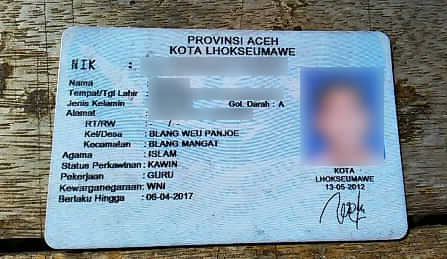Expired But Valid: What We Learned About Indonesian e-KTP Scandal
Security matters. All fintech, blockchain and gambling companies check data of users from all over the world. As there is no unified identity standard, every country define its own requirements on the national level.
There are three types of passport in Cambodia, and all are valid, in Hong Kong locals may have British passports, Australian seafarer’s certificates can serve as IDs for their holders.
If a company wants to succeed in passing this minefield, it shall be also acquainted with standard fonts and stamps – and, furthermore, be aware of local peculiarities related to security features of the documents in use. From this point, we start publishing a number of materials on such peculiarities.
Outcome of Indonesian e-KTP Scandal
Our first release centers around an unclear situation with Indonesian identity cards. Because of the legal issue and corruption scandal taking place this decade, all the newly issued identity cards have ambivalent nature: they are expired but still valid. We will show you how it happened and give some insight regarding our experience in solving such issues.
e-KTP: Indonesian ID cards
First, it is necessary to tell what makes Indonesian IDs different from other national identity documents. As a matter of fact, they are similar to other passports but have some peculiarities. In Indonesian, an ID is called Kartu Tanda Penduduk (which means Resident Identity Card), commonly mentioned as KTP.
Speak to one of our compliance experts today.
Special ID types are issued for Indonesian and non-Indonesian citizens. The card is given upon reaching the age of 17 or upon marriage. For Indonesian citizens, the card must be renewed every five years. In case of non-Indonesian residents, the card is expired on the same date as their residency permit.
In 2011, the Indonesian government launched the KTP reform: it started issue of electronic ID cards, e-KTP (KTP elektronik) containing embedded microchips.
In the very beginning of the story, the Home Affairs Ministry commenced a trial implementation of e-KTPs in six regions in 2009: Makassar, Padang, Denpasar, Yogyakarta, Cirebon and Jembrana. However, this trial project, conducted by the Lintas Peruri Solusi consortium, was marked with numerous technical problems and alleged corruption.
Corruption case
Although it was a good attempt to modernise the process of acquiring and updating citizens’ KTPs. Placing the KTP system online via the e-KTP was a bid to revamp the residential IDs and make it harder for fraudsters to duplicate them.
But, as it turned out, the main threat was imposed not by fraudsters – there were corrupted authorities who made the case a scandal.
It first surfaced in 2013 when convict Muhammad Nazaruddin, the former treasurer of the president’s party, implicated a number of politicians in the major projects where, according to him, the budgets had been rigged.
The key figure among the persons involved is ex-House speaker Setya Novanto. He is convicted of unlawful actions leading to $244 million state rip-off. In these actions, several other top politicians, officials and companies were involved.
In the course of the trial, the suspects revealed that the money flow was stemming from the e-KTP project and led to various parties: bureaucrats, executives, and other officials.

System has to be functioning
The scale of the scandal became threatening, so Home Affairs Minister Tjahjo Kumolo had to suspend the e-KTP project in September 2014. This decision resulted in a situation where the entire national ID system became suspended. The promising ID reform has stopped half way.
But, as we know, there are things that just must be functioning to avoid total chaos. National ID systems are among such things. In this setting, the Indonesian government had nothing left to do other than let all the already-issued IDs be valid, yet expired. Critical situations require critical decisions.
Although, according to international regulations in the field of ID checking, expiring documents is unacceptable, an exclusion has been made for Indonesian IDs. It means that whether an Indonesian ID is handled, a lot of other features must be verified (protection signs, database consistency, etc.).
Now, after getting to know such ambivalence related to Indonesian identity documents, one more future unclear situation is eliminated for you. So as many others. Stay tuned and find out more peculiarities with us!
To ensure your company is handles cases like that one, our technical and legal experts are always at your service. For more information, contact us directly.
Explore more
- Regulatory compliance
- Dec 21, 2023
- 10 min read
- Verification
- Dec 14, 2023
- < 1 min read





